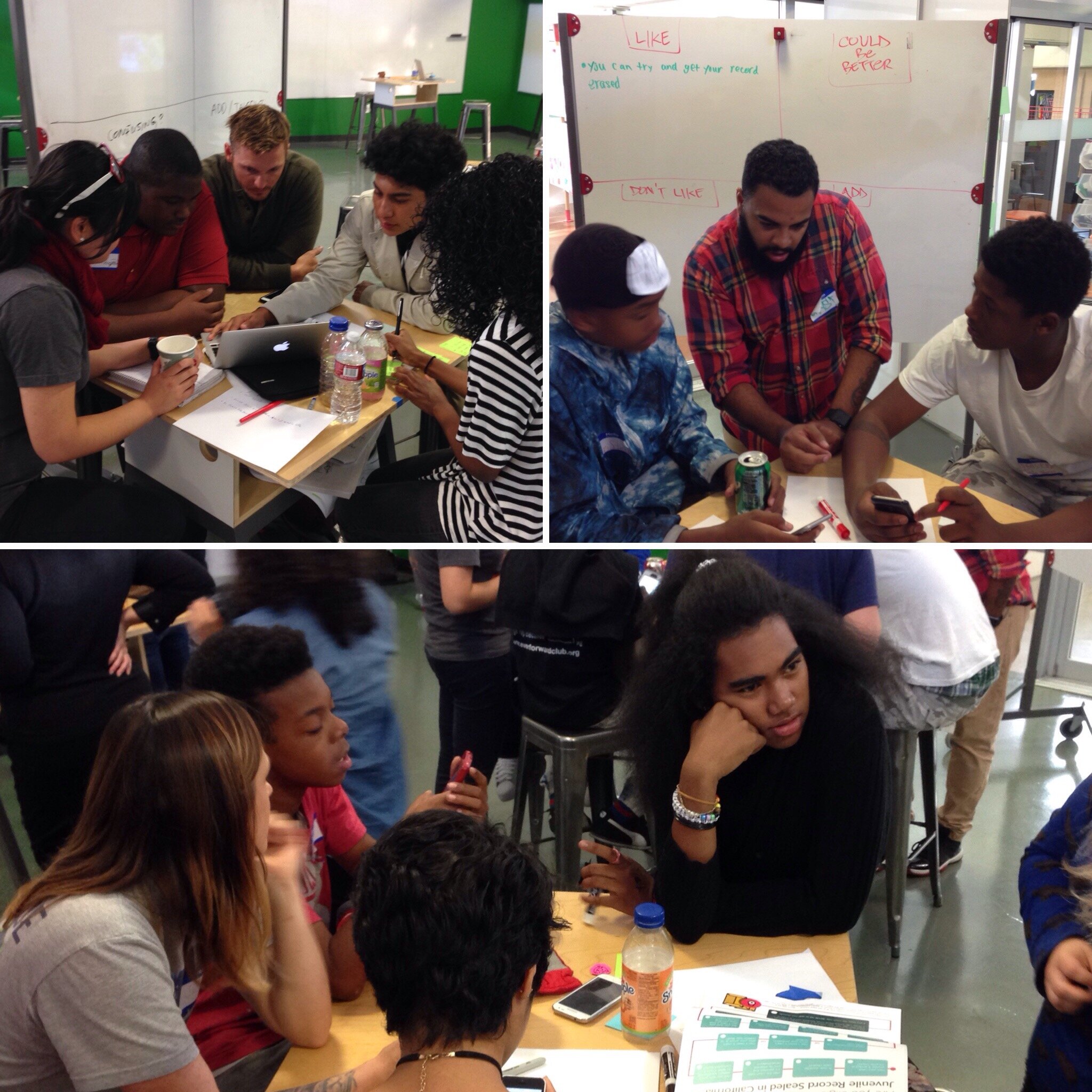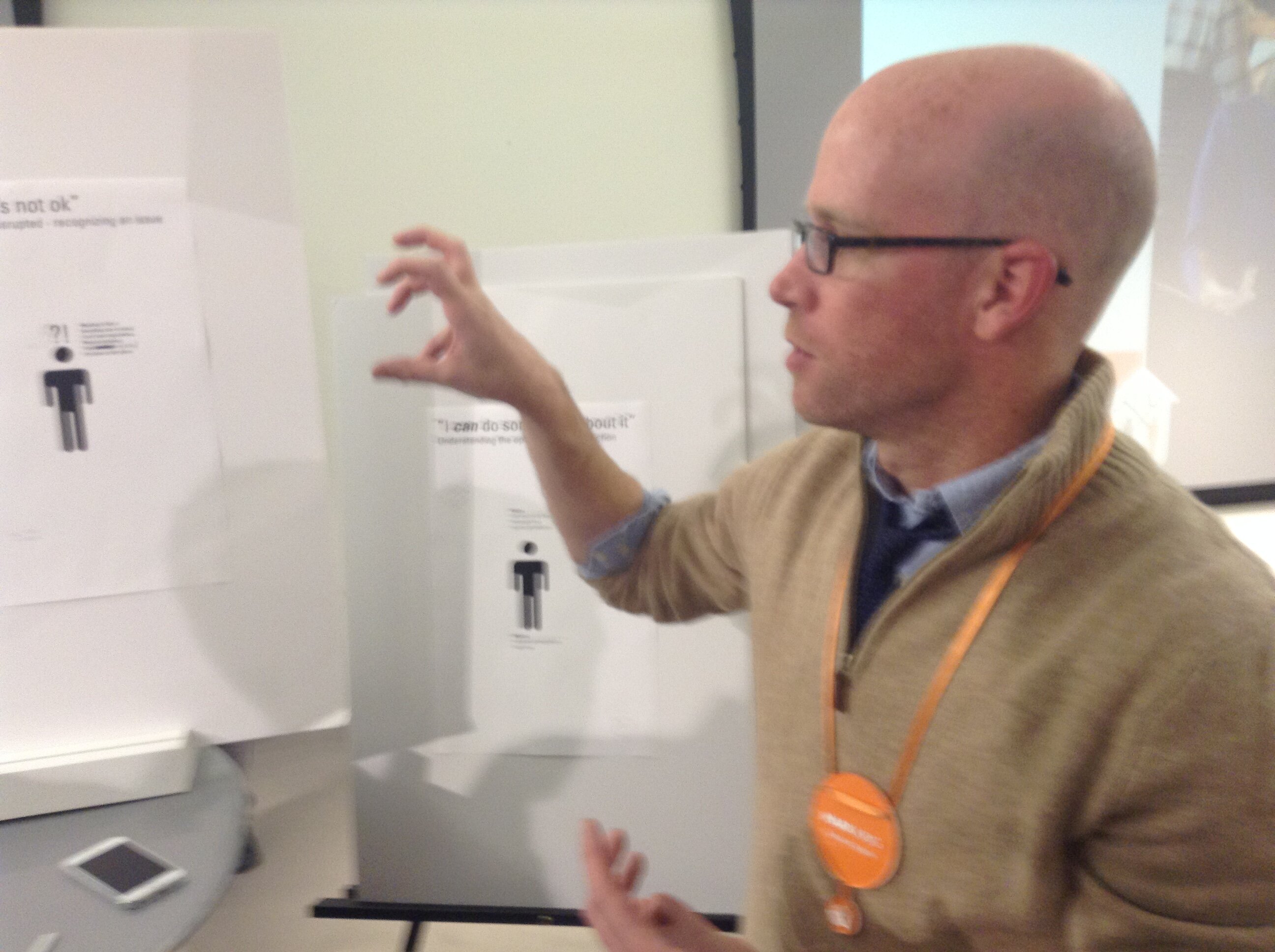Here’s a recap of OpenGov Hack Night.
This week’s presentation: Gravitytank wins the White House Health Design Challenge
Gravitytank, a consultancy firm located here in Chicago, recently won the White House Health Design Challenge. The challenge was to help redesign health records from the Veterans Administration.
As part of the VA’s Blue Button program, people under VA care can download their records at any time. However, currently these records look something like this:
The records are not exactly easy to read. So, the White House issued a challenge for people to re-imagine these records in a way that makes it easier for patients to manage their health. Gravitytank took up the challenge and came up with this design.
The design places static information such as name and birthdate on the left hand side of the screen. On the right, the information is dynamic and updates with information when to take medications, doctor’s appointments and test results.
The design also makes records more understandable. When test results come in, a sliding scale displays next to that ranges between “Concerning to Doing Well” so that the patient doesn’t have to ask the obvious “Is that good or bad?” question.
You can check out Gravitytank’s full design by clicking here.
Project of the Week: OpenStreetMap
OpenStreetMap is an open source map that anyone can use and contribute to at no cost. In Chicago, transportation guru Steve Vance and the OpenStreetMap Chicago Meetup group are working to improve the map around Chicago. Currently, Chicago’s map lags behind other cities. This includes filling in the building footprints, adding information for bikers, and helping to fill in information on Chicago’s west side.
OpenStreetMap is different from maps like Google and Bing because it has no restrictions on how you can use the data. Google has started to charge the most active websites for the use of their maps, but this won’t be a problem for OpenStreetMap. The popular app Foursqaure already uses OpenStreetMap as part of their app.
The only problem with OpenStreetMap is that Chicago’s data portal always held the right to revoke their data. If this happened, OpenStreetMap would have to delete Chicago’s data from the map. OpenStreetMap actually stopped importing data because of this issue. Which brings us to this week’s Data Set Of the Week!
Data Sets of the Week: The City of Chicago releases datasets on GitHub under the MIT license
The City of Chicago’s Director of Analytics Tom Schenk Jr. announced that the City is now publishing some of their data sets on the city’s GitHub account under the MIT license.
Currently the city’s data portal uses a license that says that the city can revoke access to the data at anytime. Most of the time, this only gets used when there’s a mistake in the data that needs to be corrected. Once the city corrects the data set, the city releases the data on the data portal again.
However, this license limits certain open data activities like OpenStreetMap. So, the city is now releasing datasets on GitHub under the MIT license. GitHub is a website that hosts repositories of code and data that are open to the public and free for anyone to download and copy. The MIT license would enable people to continue to use the data set even if the city revokes access on the main data portal.
Eventually, the city wants to be able to accept pull requests for it’s data. A pull request is a method used on the GitHub platform that allows users to make changes to a project. For example, the city has a data set of all the bike racks. If a business owner installs their own bike rack, the city may not be aware of it and wouldn’t know to put it in the dataset. A resident could update the data and then ask the city to “pull” the updated changes into the official data set.
Next Week:
Next Tuesday, there will be no Open Gov Hack Night. Instead, the next Chicago OpenGov Meeting will feature Knight Foundation News Innovation director John Bracken who will be discussing the challenge. Because of high interest in the event, Smart Chicago will be live streaming the talks on Google+ and will post the video to YouTube. The next OpenGov Hack Night will be March 3rd.






